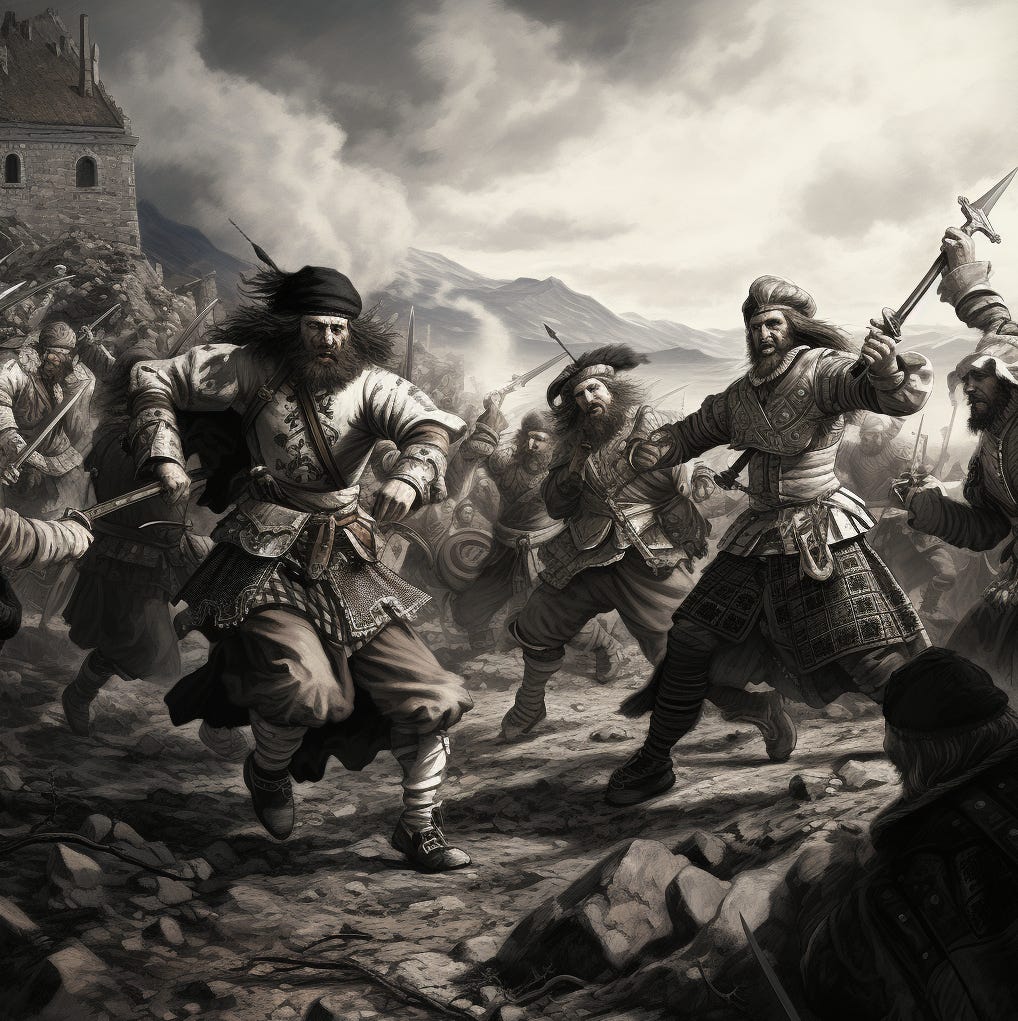Clan Chisholm at Culloden: A Tale of Divided Loyalties
The Battle of Culloden, fought on April 16, 1746, stands as one of the most pivotal and tragic moments in Scottish history. It marked the culmination of the Jacobite Uprising of 1745, led by Charles Edward Stuart, also known as Bonnie Prince Charlie. The battle saw the clash of two ideologies and a nation divided, including within the ranks of the Highland clans. One such clan, the Chisholms, found themselves torn between loyalty to the Jacobite cause and allegiance to the British Crown. In this 2000-word blog post, we delve into the complex narrative of Clan Chisholm's divided loyalties during the Battle of Culloden.
Read the new article from our daily premium feed : The Tragic Love Story of Clan Chisholm
Clan Chisholm: A Highland Legacy
Clan Chisholm, with its origins shrouded in the mists of time, holds a significant place in Scottish history. Descending from a common ancestor, they initially resided in Roxburghshire and Berwickshire. However, their main seat was in the picturesque Strathglass in Inverness-shire. The clan's proud Highland heritage and ancestral lands are central to understanding their story.
The Jacobite Uprising of 1745
The backdrop of the Jacobite Uprising, with Bonnie Prince Charlie's ambitious bid to reclaim the British throne, set the stage for the events leading up to Culloden. The rallying cry of the Jacobite cause resonated deeply with many Highland clans, Clan Chisholm among them.
The Chisholm chief at the time, Chisholm of Knockfin, made the fateful decision to join the Jacobite ranks. This decision brought a significant number of Chisholm clansmen into the Jacobite army, setting the stage for their involvement in the battle.
Yet, within Clan Chisholm, loyalties were far from uniform. A complex web of allegiances and family ties divided the clan. The Chisholm's two sons, Alexander and William, would play pivotal roles, but they would choose opposing sides.
The fateful day of the battle arrived. Culloden Moor, with its challenging terrain and strategic location, would witness a brutal clash between the Jacobite army and the Hanoverian forces. The outcome would prove decisive for the course of Scottish history.
Clan Chisholm's Plight
In the midst of the battle, Chisholm clansmen found themselves caught in the crossfire. Torn between their chief's unwavering Jacobite convictions and the authority of the British Crown, they experienced emotional turmoil and faced dire consequences.
The aftermath of Culloden was devastating for the Jacobite cause and its supporters. The brutal reprisals against Jacobite sympathizers and the forfeiture of Chisholm lands would have a lasting impact on the clan's future.
Alexander and William Chisholm: A Tale of Two Brothers
The stories of Alexander and William Chisholm, who fought on opposing sides at Culloden, offer a poignant insight into the personal choices made during this turbulent period. Understanding their motives and the consequences they faced sheds light on the complexity of the era.
Clan Chisholm's journey did not end at Culloden. The long-term repercussions of the battle would shape the clan's identity and fortunes. Eventually, the clan would see pardon and the partial restitution of their lands.
The Battle of Culloden left an indelible mark on Clan Chisholm's identity. The enduring legacy of this historic conflict continues to be commemorated and remembered by the clan and Scotland as a whole.
Conclusion
The Battle of Culloden serves as a poignant reminder of the intricate dynamics that unfolded within Scottish clans during this tumultuous period in history. Clan Chisholm's divided loyalties at Culloden encapsulate the profound challenges faced by many Highland families. Their story is a testament to the enduring legacy of the Jacobite Uprising and the sacrifices made by those torn between loyalty to their clan chief and allegiance to the British Crown. Culloden remains a symbol of the complex tapestry of Scottish history, where the choices of individuals and clans continue to echo through the ages.





